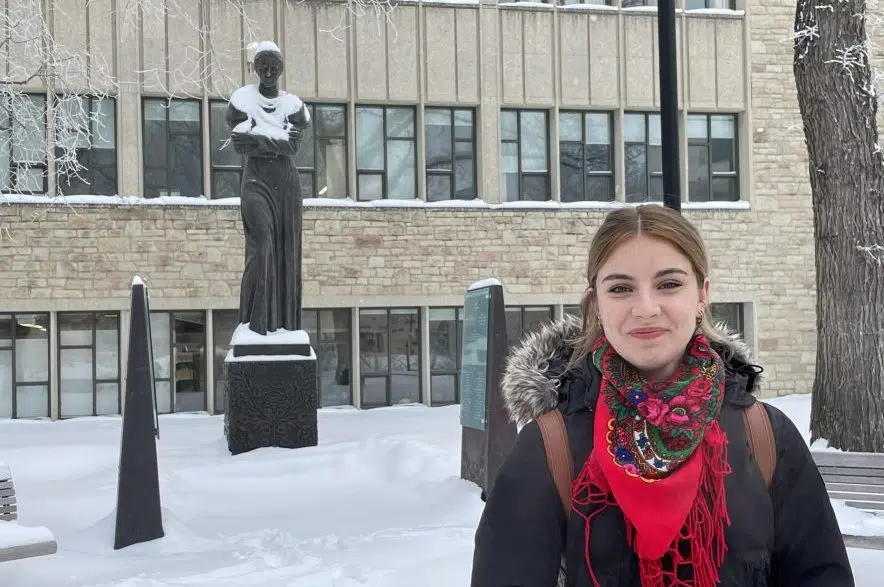Orthodox Christmas arrives this Saturday and a university student in Saskatoon is excited to celebrate.
Marta Krueger is a fifth-year student and co-president of the University of Saskatchewan’s Ukrainian Students’ Association. She said she’s travelling to Regina this weekend to celebrate Orthodox Christmas with her family.
“I have grown up participating in two Christmases my entire life,” Krueger said.
The traditions are often different between different families, Krueger explained, but one of the biggest parts of the holiday is often the Christmas Eve dinner, which includes a dozen meatless dishes that represent both the 12 disciples of Jesus and the 12 months of the year.
One of the most famous dishes is kutia. Krueger said it resembles an oatmeal, but made with whole grain wheat kernels and sweetened with honey brine and poppy seeds.
“It’s my favourite thing. It’s so yummy,” Krueger said.
The Christmas Eve meal, Krueger said, also includes classics like perogies, cabbage rolls and borscht.
Once Christmas Day arrives on Jan. 7, ham and other meats will be found on many Orthodox tables. Krueger said it’s considered respectful in her family to try at least a taste of every dish, “even if it isn’t your favourite.”
For Krueger, that dish is pickled herring.
“My grandpa is still working on me to get me to like it, but we’re at 22 years here and I’m still not a fan,” she said with a laugh.
Another Christmas Eve tradition is setting an extra, empty place at the table.
Krueger said the extra setting is meant to “represent family that you’ve recently lost or family that is no longer with you,” adding the extra seat also represents a welcome gesture to Jesus and can be used to accommodate any lost travellers who cannot make it to their own homes for the holiday.
“It’s all about being together and being with family and sharing your experiences,” she shared.
Gifts aren’t a big part of Orthodox Christmas, Krueger explained, as the focus is always on spending time together with family. This year, Krueger said she’ll bring her partner to join her family for the first time.
“He is not Ukrainian, but I have briefed him a little bit on what to expect,” she said, smiling.
After their Jan. 6 dinner, Krueger said her family will attend a midnight mass.
“That is always one of my favourite services,” Krueger said. “It’s quite a long service, but then at the very end is when they sing their Christmas carols.”
Those who observe Orthodox Christmas aren’t supposed to sing carols before Christmas Day, except during rehearsals, Krueger said.
Because of the tradition that carols only be sung after the holidays begin, Krueger said she’s planning a caroling event where Ukrainian students at the U of S will gather to sing for others. It’s a Ukrainian tradition for people to gather and go to each other’s homes, sing some carols and accept snacks and drinks.
Often, these groups will also collect money for charity. In the past, Krueger said they’ve visited seniors’ homes and a church. In their first event since the COVID-19 pandemic, she said their group will visit one seniors’ home and a few other homes throughout the evening.
Krueger’s favourite carol is “Dobrey Vechir,” which means “good evening,” and is usually the first song people will sing as a well-known greeting tune.
“Even if you’re not the best singer, like myself, it’s pretty easy to sing along to,” she said.
Krueger said she enjoys learning the meanings behind the time-honoured traditions she’s always known.
“Every year I learn something new,” Krueger said.







